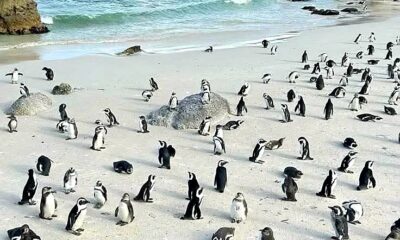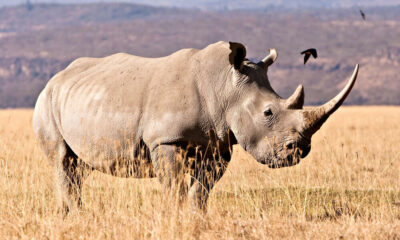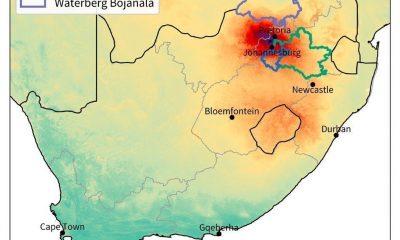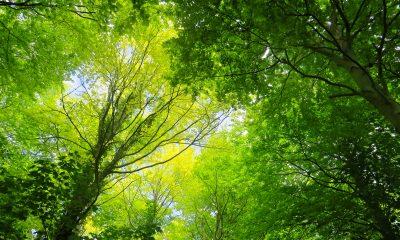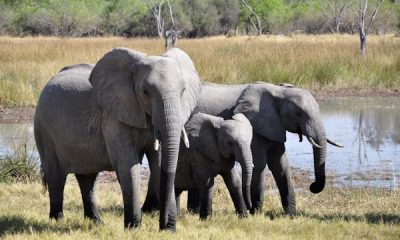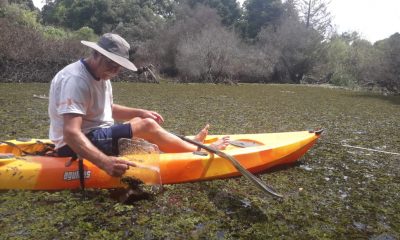Business
South Africa’s Trophy Hunting Freeze is Costing Billions – and Its Reputation

Luxury hunters are spending millions elsewhere. Here’s why South Africa is missing out.
For the last five years, something critical has been missing from South Africa’s trophy hunting industry — and it’s not wildlife. It’s paperwork.
The environment department’s ongoing failure to issue export quotas for elephants, leopards and black rhinos — despite legal provisions and international allowances — has effectively shut down some of the country’s most lucrative hunting safaris. These are not your average bush breaks. Some hunts cost up to R6.2 million each, mostly paid by foreign tourists looking to take their prize trophies home.
According to Wildlife Ranching South Africa (WRSA), the government’s silence has already cost the industry more than R2.25 billion and opened the door for regional rivals to claim a bigger share of the global hunting market.
Million-dollar hunts, zero approvals
In a country where wildlife ranching contributes around R44 billion to the economy annually, the impact of not issuing a simple set of quotas has raised eyebrows and frustrations across the sector.
“We haven’t been able to offer hunting opportunities for some of our most iconic species,” said WRSA CEO Richard York, adding that hunters are now turning to countries with “clear, lawful frameworks.”
York says the lack of action not only affects the bottom line but also makes South Africa look “unprofessional and unreliable” in the eyes of high-spending international clients.
These aren’t just weekend warriors. Wealthy hunters from the US and Europe are willing to pay:
-
R6.2 million for a single black rhino
-
R1.3 to R1.78 million for an elephant
-
R709,000 for a leopard
But without CITES-approved quotas, these clients can’t take their trophies — think ivory tusks or mounted leopard heads — home, effectively killing the deal.
What changed?
Back in 1993, South Africa granted landowners full ownership of wild animals on their property. That legal shift transformed wildlife into an asset and helped the private game industry boom.
The United Nations’ Convention on International Trade in Endangered Species (CITES) allows South Africa to permit hunting for:
-
150 elephants
-
150 male leopards
-
Up to 10 black rhinos annually (0.5% of the population)
Yet, since 2020, the Department of Forestry, Fisheries and the Environment has not issued the necessary quotas, despite ongoing commitments to sustainable use of biodiversity by both current minister Dion George and former minister Barbara Creecy.
The department has declined to explain the delay, only stating that it is “considering the matter” — a vague response that has now triggered legal action.
Court battle and policy confusion
WRSA is now taking the department to court. A recent High Court ruling (21 July) compels the minister to hand over documents explaining the quota delay. But the department insists it doesn’t need to comply until a decision has been made — a catch-22 that has left stakeholders fuming.
While provincial authorities can issue permits for local hunts, they’re worth a fraction of what international clients pay. And without export rights, the high-end market dries up fast.
A contradiction in policy?
The irony? The department has also spoken publicly about wanting to expand game meat exports, boost eco-tourism, and support sustainable hunting as a conservation tool.
But inaction on trophy hunting quotas is sending a different message.
South Africa’s safari industry isn’t short on natural wonders or biodiversity. But when red tape keeps the gates closed — and millions walk out the door — it raises the question: who really benefits from the silence?
Source:Business Tech
Follow Joburg ETC on Facebook, Twitter , TikTok and Instagram
For more News in Johannesburg, visit joburgetc.com

